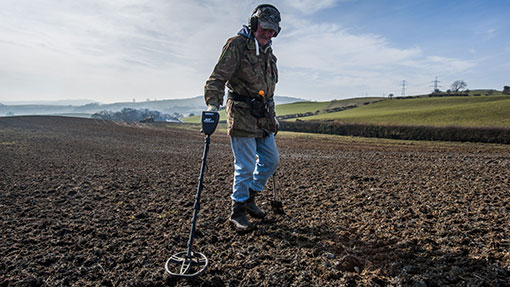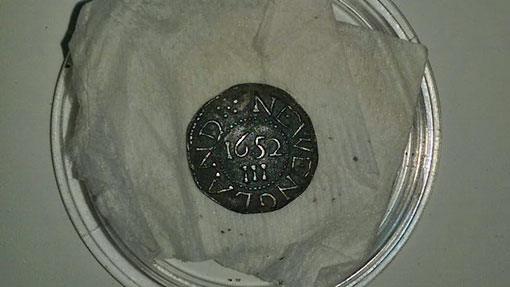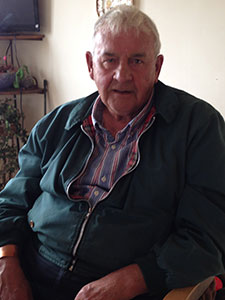Rare coin found in spud field ‘could net £1m’

A farmer and landowner could fetch a share of more than £1m after a rare 17th century American coin was unearthed on his land.
Amateur metal detectorist John Stoner uncovered a 350-year-old threepenny coin, used by America’s Pilgrim Fathers, during a search with a metal detector on Roy Bowring’s farmland in Nottinghamshire.
British auctioneers have valued the coin between £30,000 and £80,000. But one US auction house expects the coin to fetch as much as $1.7m (£1m) when it is offered for auction later this year.
See also: Farmland yields historic treasure hoard
The coin bears the date 1652 and is in a well-preserved state, say coin experts.

It is not known how the coin ended up in the village of King’s Clipstone, but experts believe it was one of the first colonial coinage and commissioned and struck in Boston, Massachusetts.
The coin is in the USA where it is being authenticated and cleaned by experts before being offered for sale at St James’s Auctions in London on 2 December.
“A lot of farmers are struggling at the moment, but a discovery like this is a chance for them to make some extra money.”
Ian North, Coil to the Soil
Mr Stoner discovered the coin during a search of a potato field with the Coil to the Soil metal detector club on Sunday 31 August. Club rules state the discovery of coins and artefacts valued at more than £500 must be split 50/50 with the landowner.
Single coins found on their own don’t count as “treasure” under the Treasure Act 1996 and therefore don’t have to be reported to the Crown.
As a result, under common law the farmer could make a strong case for ownership of the coin. However, Mr Bowring (pictured below) let metal detectorists on to his land under the agreement that the value of any discoveries would be split evenly between both parties.
Mr Bowring said: “Some farmers don’t like the idea of people metal detecting on their land, but if they are with a good society that is registered, just let them have a look.
“The reason they think this coin is worth so much is because the wording for ‘Massachusetts’ is spelt with the ‘S’ the wrong way round. It’s solid silver and usually you cannot find these in mint condition. It hasn’t been niggled at.”
Mr Bowring, who runs 11 farming enterprises spanning 567ha (1,400 acres) with his son Mark and also trains racehorses, added he was “excited” by the prospect of how much the coin could sell for.

But he joked: “It’s probably only worth £10. We’ll have to wait and see.”
Ian North, of Worksop, Notts, who runs Coil to the Soil, said he hoped the discovery would lead to other farmers opening up their land.
“A lot of farmers are struggling at the moment, but a discovery like this is a chance for them to make some extra money,” he added.
“Farmers can be quite mistrusting of metal detectorists digging up their land. But this discovery might make them think again and help us get on to a bit more land.”
Last year Coil to the Soil raised several thousands for charities including Cancer Research and the air ambulance after landowners agreed to donate their share to good causes.
Anyone willing to open their land to the group for metal detection is urged to email coiltothesoilmdc@gmail.com
